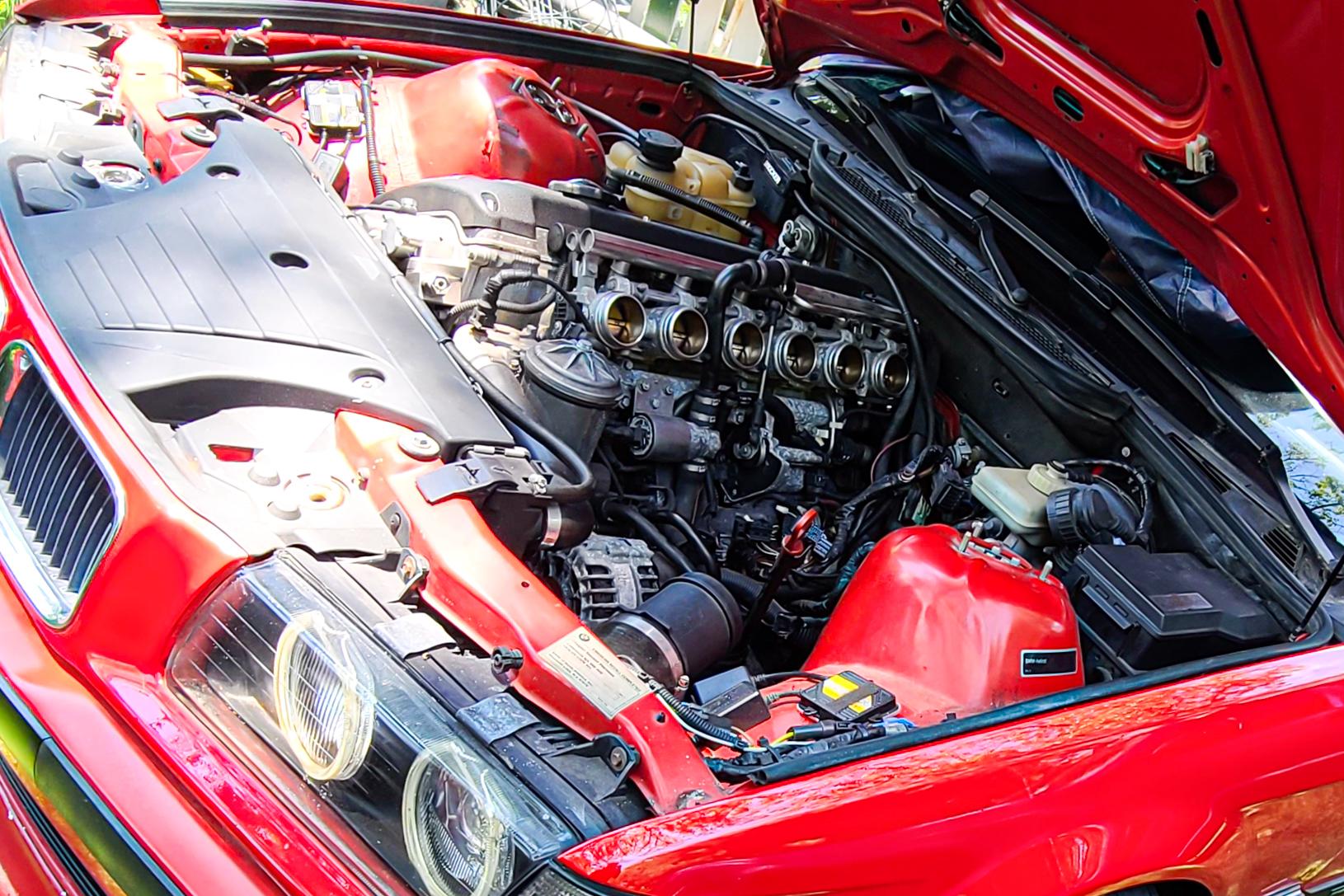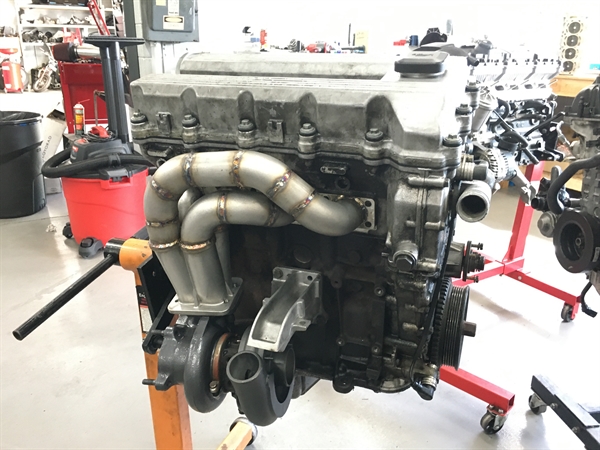BMW 318ti Review: What Makes This Design Attract Attention
Key Features to Look for When Acquiring an Engine for Automotive Applications
When taking into consideration the acquisition of an engine for vehicle applications, numerous crucial functions call for cautious examination to guarantee ideal performance and functionality. From power and performance capacities to sustain longevity, adherence, and performance to exhausts requirements, each element plays a vital function in figuring out the engine's suitability for details vehicle requirements. Furthermore, cost-effectiveness remains an essential consider the decision-making process, stabilizing high quality with financial factors to consider. These attributes collectively add to the general performance and dependability of the engine, influencing the driving experience and long-lasting complete satisfaction of the customer.
Power and Performance
When picking an auto engine, buyers prioritize power and performance to ensure optimal driving experience and performance. The power result of an engine, often measured in horsepower (HP) or kilowatts (kW), dictates the acceleration, top speed, and general capacities of a lorry. Greater power rankings usually cause quicker velocity and far better efficiency, specifically throughout surpassing or lugging hefty tons. Efficiency, on the other hand, includes a broader spectrum of characteristics, consisting of fuel performance, exhausts, integrity, and general driving dynamics. A well-performing engine not only delivers power successfully yet additionally operates smoothly across different rate varieties and driving problems.
Purchasers typically consider the engine's torque output along with its power score. Torque, determined in pound-feet (lb-ft) or Newton-meters (Nm), shows the engine's rotational force, influencing the automobile's capacity to tow, climb inclines, and accelerate from grinding halt. An equilibrium in between power and torque is important for achieving a functional and responsive driving experience. In addition, elements such as engine variation, turbocharging, and hybrid modern technologies play considerable duties in improving both power and efficiency levels. Inevitably, selecting an engine that uses a potent combination of power and efficiency makes sure a efficient and enjoyable driving experience. bmw 318ti.
Fuel Efficiency
When examining automobile engine choices,Optimizing gas efficiency is a vital consideration for customers. The efficiency of an engine directly influences operating expenses and ecological footprint. One essential factor influencing gas efficiency is the engine's layout and technology. Modern engines with functions like straight fuel shot, turbocharging, and variable valve timing can dramatically boost fuel performance by improving combustion procedures and decreasing power loss. In addition, the overall weight of the engine and automobile, as well as the aerodynamics, play essential duties in identifying gas intake.

Longevity and Dependability
Achieving durable efficiency and dependable procedure is necessary for consumers examining the resilience and dependability of automobile engines. When taking into consideration an engine for automobile applications, resilience describes the engine's ability to withstand wear, anxiety, and harsh operating conditions over an extensive period. Integrity, on the other hand, indicates that the engine can constantly execute its designated feature without unexpected malfunctions or failings.
Consumers must look for engines built with high-quality products and specific engineering to make sure long life. Components such as bearings, pistons, and crankshafts should be resilient to take care of the engine's power result without premature wear. Furthermore, engines furnished with innovative air conditioning systems, effective lubrication, and robust filtering devices often tend to exhibit higher levels of dependability.
Routine upkeep and adherence to producer referrals are also essential consider maintaining an engine's durability and reliability. By following maintenance schedules, using suggested fluids, and dealing with any type of problems immediately, customers can optimize the life-span and efficiency of their vehicle engines. Inevitably, focusing on toughness and dependability in engine option can bring about a much more satisfying possession experience with less unforeseen disruptions.
Discharges Compliance
Ensuring conformity with exhausts guidelines is an essential element of assessing automotive engines for environmentally aware customers. With enhancing concerns concerning air top quality and environmental impact, rigorous discharges standards have actually been implemented internationally to decrease hazardous toxins released right into the environment. When buying an engine for automotive applications, it is important to consider its exhausts conformity to minimize the carbon footprint and stick to legal demands.
Modern engines are equipped with innovative discharge control technologies such as catalytic converters, exhaust gas recirculation (EGR) systems, and selective catalytic reduction (SCR) to decrease unsafe exhaust gases like nitrogen oxides (NOx), carbon monoxide gas (CARBON MONOXIDE), and hydrocarbons (HC) These systems play a vital role in making certain that the engine meets the defined emissions requirements and runs within permitted limitations.

Cost-effectiveness
When thinking about automotive engine purchases, assessing cost-effectiveness is vital for customers looking for both efficiency and worth. Cost-effectiveness in engine procurement entails greater than simply the preliminary acquisition rate. It incorporates the overall expenses connected to maintenance, fuel usage, and prospective repair services over the engine's life expectancy. Opting for an engine that supplies a balance in between upfront costs and long-term savings can lead to considerable benefits for the consumer.
One trick facet of cost-effectiveness is gas effectiveness. Engines that are developed to maximize gas economic situation can cause considerable cost savings over time, particularly for individuals who drive regularly or over fars Extra resources away. In addition, thinking about the availability and affordability of extra components and servicing can add to the total cost-effectiveness of an engine. Making sure that upkeep and repair work are easily accessible and sensible can prevent unanticipated monetary burdens down the line.

Conclusion
To conclude, when purchasing an engine websites for automobile applications, it is critical to consider essential attributes such as power and efficiency, fuel effectiveness, longevity and reliability, emissions compliance, and cost-effectiveness. These factors are important in guaranteeing that the engine satisfies the demands of the vehicle and operates efficiently in different driving conditions - bmw 318ti. Making a notified decision based on these criteria will ultimately lead to a successful and reliable auto engine acquisition
From power and efficiency abilities to fuel longevity, adherence, and effectiveness to exhausts requirements, each element plays a vital function in identifying the engine's viability for certain automobile needs. Engines made to run on alternate fuels such as electrical power, hybrid systems, or biofuels can offer better fuel economy and reduced discharges compared to typical gas or diesel engines. Customers must thoroughly consider the fuel efficiency rankings and innovations incorporated into automotive engines to make educated buying choices that straighten with their concerns for price financial savings and sustainability.
When thinking about an engine for automotive applications, toughness refers to the engine's ability description to hold up against wear, stress, and rough operating conditions over a prolonged duration.In conclusion, when buying an engine for auto applications, it is critical to take into consideration essential functions such as power and performance, fuel efficiency, dependability and toughness, exhausts conformity, and cost-effectiveness.